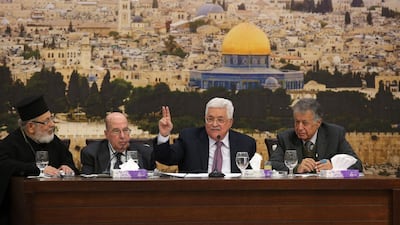The Slovenian government hopes MPs will vote to recognise the Palestinian state and become only the second country to do so as an EU member state, Slovenian foreign minister Karl Erjavec said on Monday.
"Everybody [other EU member states] backs such a Slovenian step that will happen if parliament green lights the proposal for recognising the Palestinian state," Mr Erjavec told private channel POP TV.
The minister was speaking from Brussels, where Palestinian president Mahmoud Abbas met European foreign ministers, who he urged to recognise Palestine. Mr Erjavec and Mr Abbas had a bilateral meeting.
Of the 28 EU member states, Sweden was first to officially recognise the Palestinian state in 2014. Eight other countries took the step before entering the EU: the Czech Republic, Slovakia, Hungary, Bulgaria, Romania, Malta and Cyprus.
Slovenia's parliamentary foreign affairs committee will meet in Ljubljana on January 31 to approve the proposal before sending it to parliament, which could vote on the issue in a session in March or April, according to Slovenian RTV public television.
"By recognising it, [Slovenia] would strengthen Palestine's negotiation in the Middle East peace process. We have an independent foreign policy, we do not need any other state to cover our back," Mr Erjavec said.
________________
Read more
Pence promises US embassy will move to Jerusalem by end of 2019
EU urges 'wise and consistent' decision-making in the Middle East
________________

